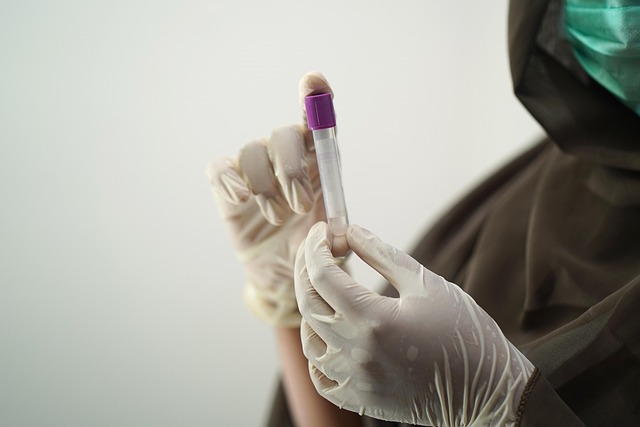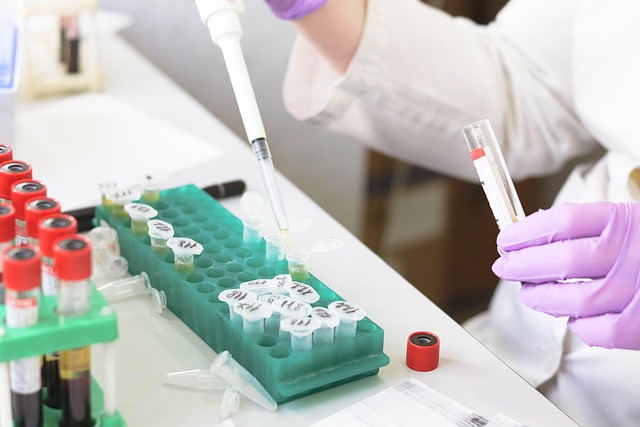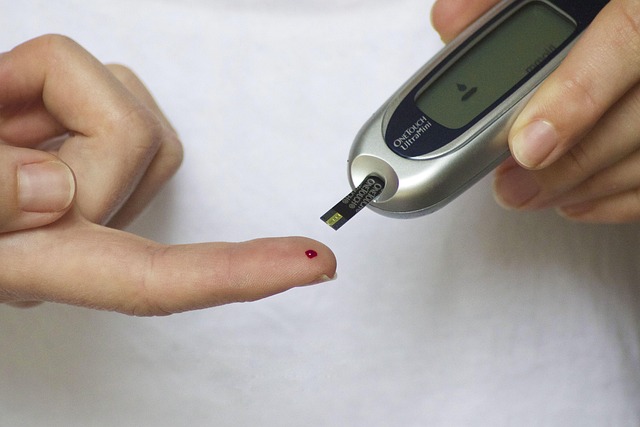Vitamin B12 deficiency, common in older adults and plant-based dieters, can be detected early with home blood tests in the UK. Symptoms include fatigue, tingling, balance issues, and cognitive problems. Home testing kits offer a convenient way to monitor levels, eliminating clinic visits. Normal range is 140-900 pg/mL, but immediate results from kits may need contextual interpretation or professional guidance for optimal health.
“Uncover the silent signs of Vitamin B12 deficiency with our comprehensive guide. In the UK, home blood testing kits offer a convenient way to monitor your health. This article explores understanding vitamin B12 deficiency, the reliability of home testing kits, and interpreting results accurately. Learn how a simple blood test at home can empower you to take control of your well-being. No more waiting rooms or lengthy lab processes – get insights instantly and make informed decisions about your nutrition.”
- Understanding Vitamin B12 Deficiency
- Home Blood Testing Kits in the UK
- Interpreting Your Vitamin B12 Test Results
Understanding Vitamin B12 Deficiency

Vitamin B12 deficiency is a common yet often overlooked health issue, particularly in individuals over 50 years old and those following plant-based diets. It occurs when the body doesn’t have enough vitamin B12, a nutrient essential for maintaining healthy nerve cells and producing DNA. A simple blood test at home UK can help detect this deficiency early on.
Symptoms of B12 deficiency include fatigue, weakness, memory loss, tingling in hands and feet, balance problems, and even anxiety or depression. Left untreated, it can lead to more serious complications, such as nerve damage and cognitive impairment. Regular screening through home blood tests in the UK is a proactive step towards managing this condition, especially for at-risk individuals.
Home Blood Testing Kits in the UK

In the UK, home blood testing kits for Vitamin B12 deficiency are becoming increasingly accessible, offering a convenient and non-invasive way to monitor your health. These at-home tests allow individuals to measure their Vitamin B12 levels in the comfort of their own homes, removing the need for a traditional visit to a clinic or hospital. The process is simple: users collect a small sample of blood, usually from a finger prick, and follow the kit’s instructions to send the sample for analysis.
This innovative approach to healthcare empowers individuals to take an active role in managing their nutrition and well-being. With accurate results provided within days, home testing kits enable timely intervention should a deficiency be detected, ensuring prompt addressing of potential health issues related to Vitamin B12 levels.
Interpreting Your Vitamin B12 Test Results

After a vitamin B12 blood test in the UK, understanding the results is crucial. Your doctor or healthcare provider will interpret the data based on specific reference ranges, which can vary slightly between labs and testing methods. Generally, a normal range for vitamin B12 levels is considered to be between 140-900 pg/mL (picograms per millilitre). If your result falls below this range, it may indicate deficiency.
The interpretation becomes more complex if you opt for a home blood test kit in the UK. These kits often provide instant results but may require additional context to determine if your levels are optimal. In such cases, comparing your result with the reference range provided by the testing company or consulting with a healthcare professional is advisable. They can help interpret the data accurately and advise on any necessary follow-up actions.
Vitamin B12 deficiency is a serious condition that can be easily detected through at-home blood tests available in the UK. By understanding the symptoms and interpreting your test results, you can take control of your health and ensure optimal nutrition. Home testing kits offer a convenient and accessible way to monitor your B12 levels, empowering you to make informed decisions about your diet and well-being. Remember, early detection is key, so consider incorporating a regular blood test into your self-care routine.
